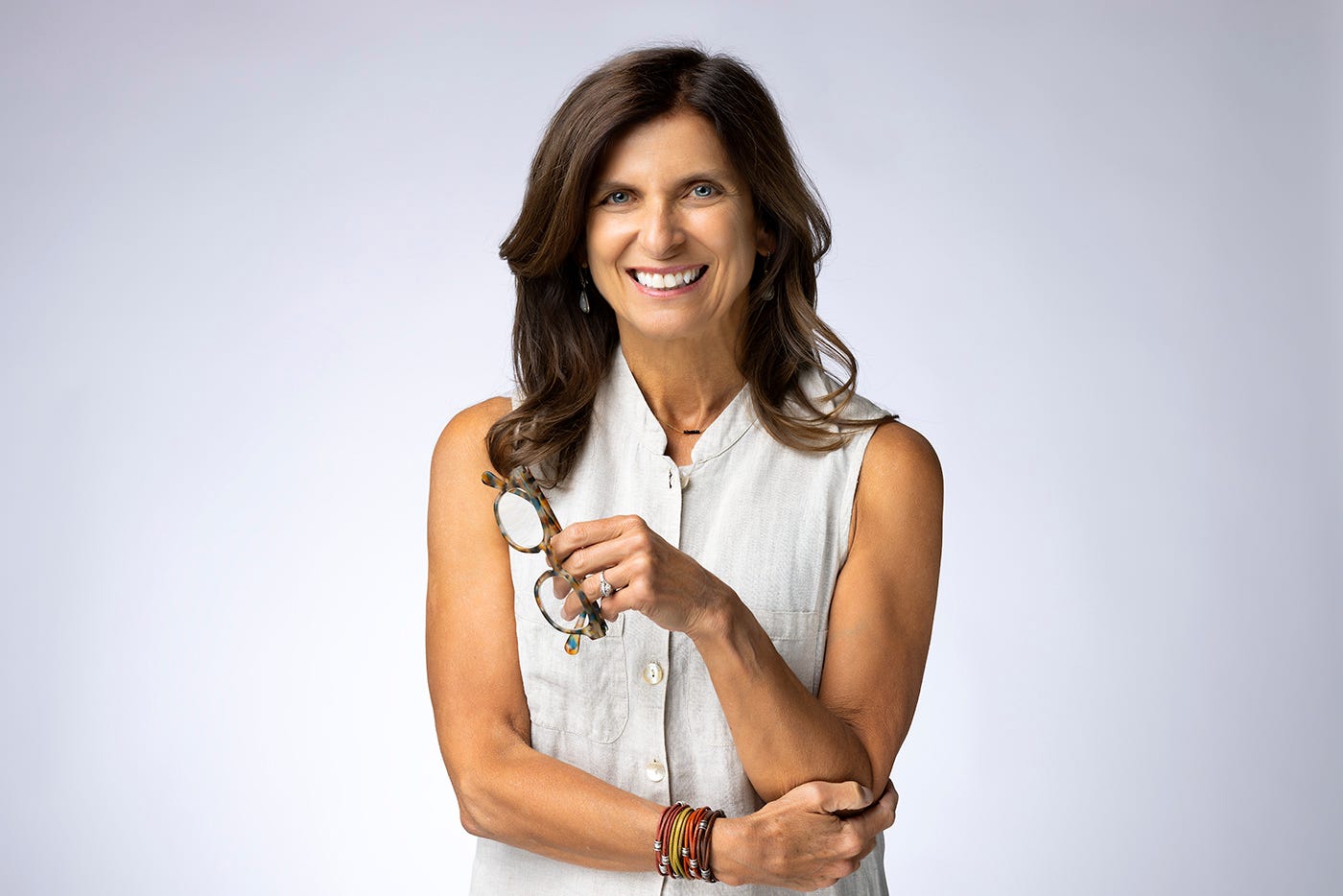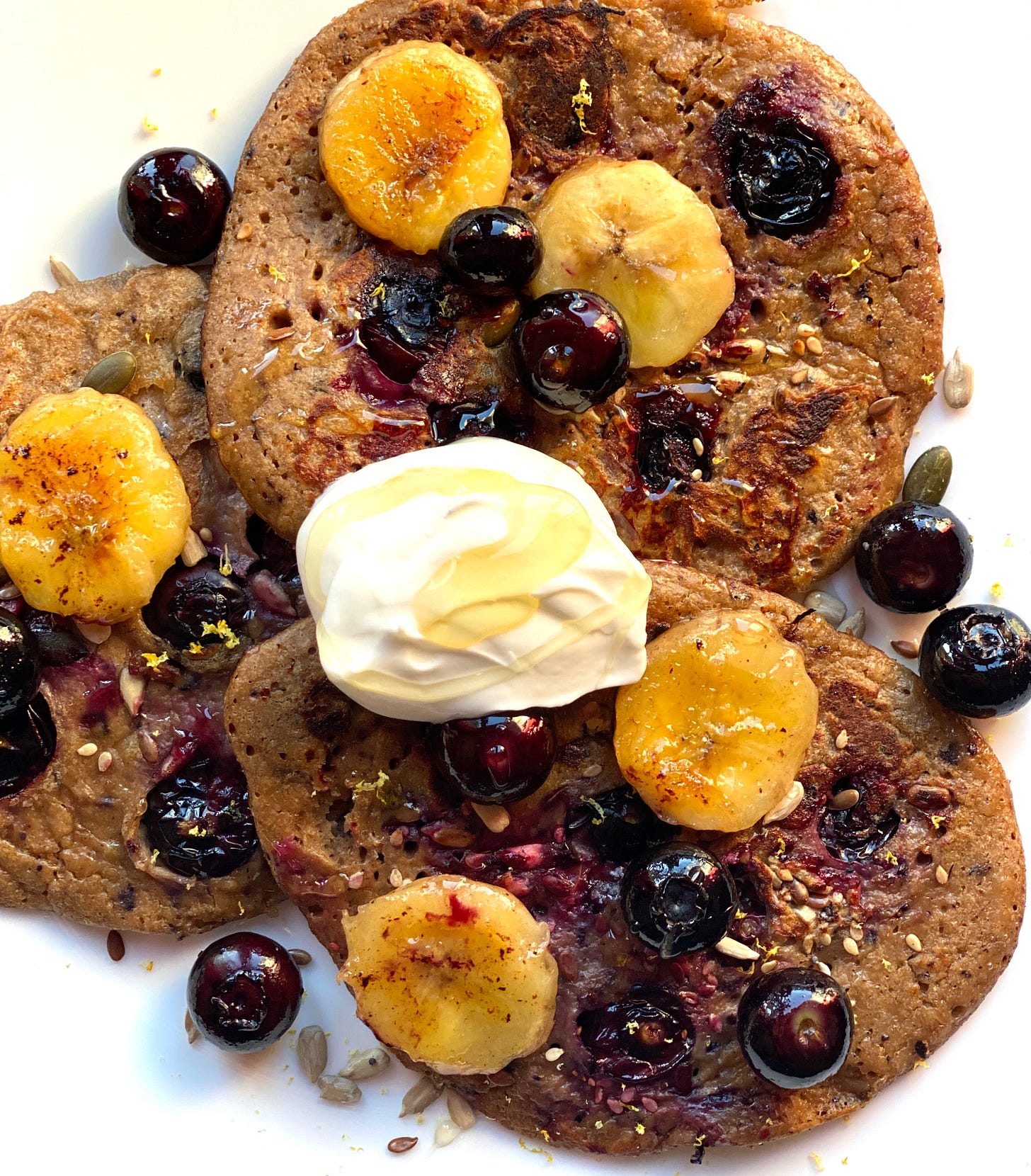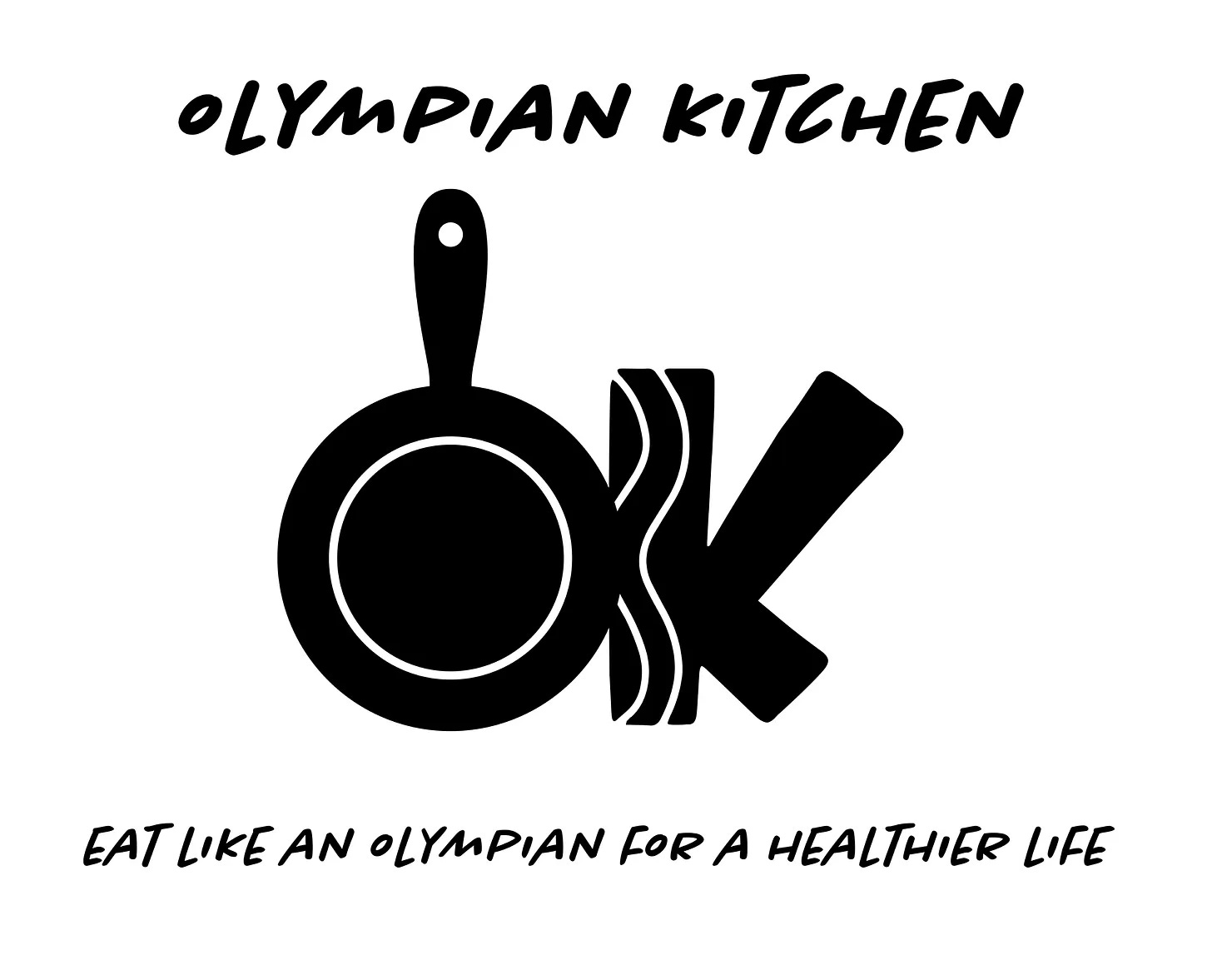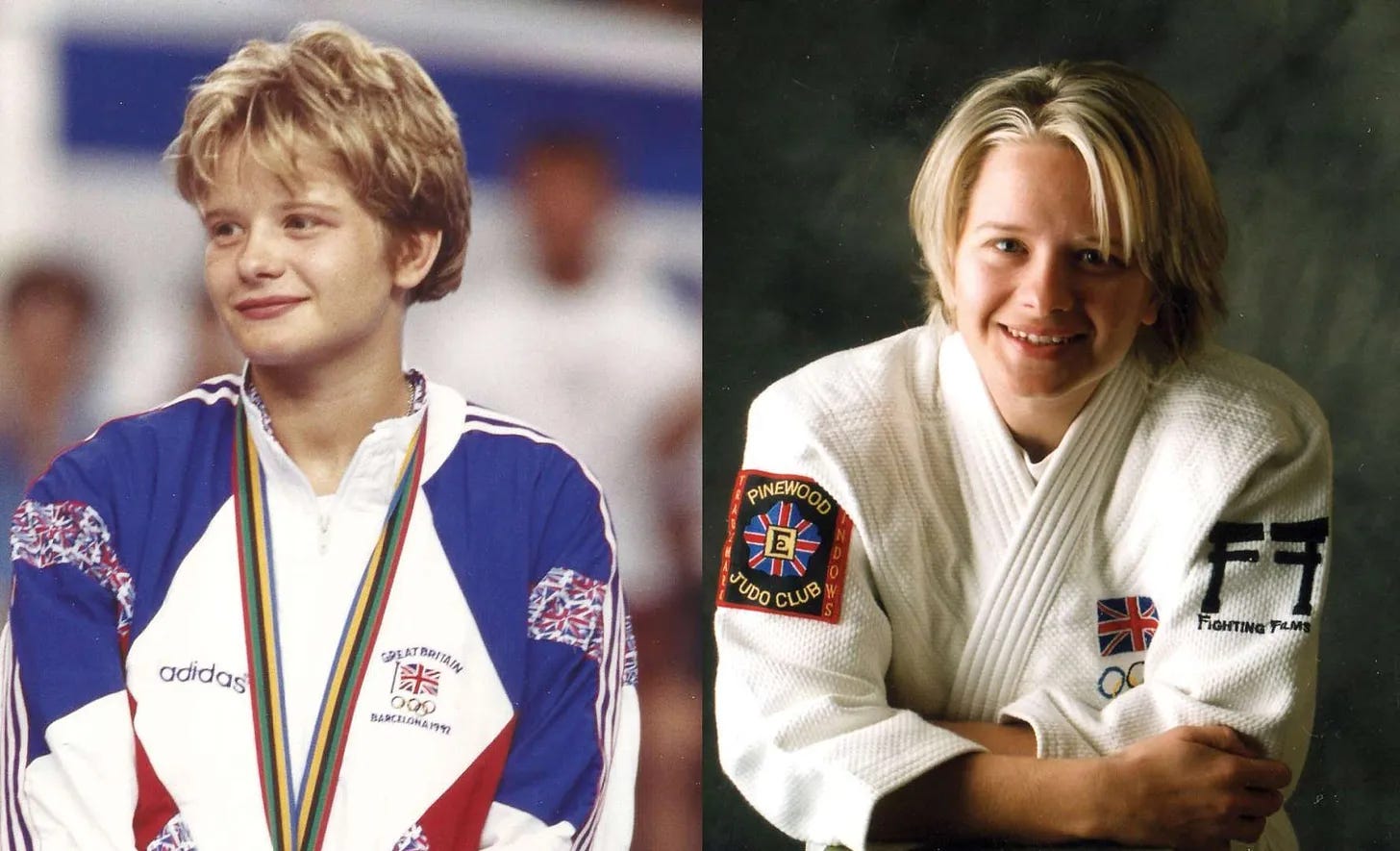Protein Packed Blueberry Pancakes
An interview with Annie Fenn of Brain Health Kitchen - Taking care of your brain first.
I’d like to do something a bit different today, and introduce you to someone who has made a real difference to the way I eat and think about food.
Annie Fenn is the author behind Brain Health Kitchen, she is also a doctor, chef and culinary instructor. I started reading Annie’s newsletter about a year ago, to understand if what we eat can delay or protect us from dementias and cognitive decline.
There’s a lot of evidence to suggest it can. What we eat is a crucial factor to aging with a healthy dementia-free brain. And the good news? What’s good for the brain, is also good for the heart, and good for the gut, and basically good for general health.
Annie shares lots of recipes through the Brain Health Kitchen newsletter. As well using brain-friendly ingredients, these recipes are packed with science and well-researched information. I find I’m learning something new every edition.
Protein Packed Blueberry Pancakes is one of these, and an absolute winner of a recipe. I urge you to have a go at making it. Not only are these pancakes tasty, they provide plenty of protein. There is a recipe at the end of the interview, which Annie has kindly let me share with you.
Recently, I got in touch with Annie to ask her a few questions about how we should go about eating to improve our brain health. What foods should we be stocking up on? What stops us eating healthily? And what foods, if any should we be avoiding?
Without further ado, here are Annie’s answers:
Annie Fenn, Brain Health Kitchen.
You can sign up for the Brain Health Kitchen newsletter here
1. What does "Healthy Eating" mean to you?
Annie: I try to take care of my brain first. I eat a wide variety of foods proven to be neuroprotective. I cook mostly from whole foods or good quality products that are minimally processed (like boxed greens and canned beans). I don't obsess over everything I eat but try to keep the big picture in mind: a diverse diet that is mostly plant-based but doesn't exclude food groups. I don't count calories, tally fat grams, or ever put myself on a "diet." I only reach for foods that I enjoy cooking, love to eat, and are a good fit for my life. For me, this is a plant-heavy Mediterranean style diet that includes fish and seafood, is focused on getting adequate protein for how active I am, and is joyful and delicious. The only foods I eliminate are the ultra processed ones.
What are typical roadblocks that you find stop people from eating a healthy diet?
Annie: 1) Perfection. This is a big one! I recommend employing a "progress over perfection" mentality when approaching a brain-healthy eating plan. Don't get hung up on having to eat all the right things all the time. For one, there is not just one ideal diet for brain health. But there are a handful of dietary patterns (all spin-offs of the Mediterranean diet) that have been shown to slow brain aging and reduce the chance of developing Alzheimer's, Parkinson's, and other types of dementia.
2) Trying to cook everything from scratch. It's just as important to be a stealth healthy shopper than an accomplished cook. Sometimes you just need to be a good shopper and assembler to put together a brain-healthy meal.
3) Eliminating entire food groups. One of the worst things someone can do for brain (and gut!) health is to stop eating an entire food group—such as whole grain, legumes, leafy greens—unless truly allergic or sensitive. There is so much food fear out there (lectins! oxalates!) that drive people to cut things from the diet. The science clearly supports maintaining a diverse diet.
What foods would you advise people stocking their larders with to make healthy eating easier?
Annie: Think in terms of food groups not "superfoods." There is actually no one food that will reduce the risk of Alzheimer's and other dementias. But there are 9 well-studied food groups that are neuroprotective, meaning eating from these food groups most of the time may help the brain age more slowly and with less problems. Reach for foods from these food groups daily: berries, leafy greens, vegetables, and whole grains. Include foods from these groups several times a week: nuts and seeds, beans and legumes. If you eat animal products, enjoy a few servings of fish, seafood or chicken each week, but shop strategically for the highest quality. Use extra-virgin olive oil daily for most cooking and drizzling. Use other oils sparingly.
What is always on your weekly shopping list?
Annie: My weekly grocery list always includes berries (fresh or frozen), leafy greens, whatever vegetables are in season, mushrooms (which I consider honorary vegetables), avocados, and really freshly roasted coffee beans. I keep my pantry and freezer stocked with these foods: frozen blueberries, whole grains (bulgur, oats, black rice, whole grain pasta), lentils and canned beans, canned tomatoes, frozen wild-caught salmon, eggs, yogurt, and all sorts of nuts and seeds for cooking and baking. I think of minimally processed foods like frozen vegetables and canned beans as being "conveniently healthy"—they help me pull together a satiating, brain-healthy meal with very little effort.
Find out more: Brain Health Kitchen
You can sign up for the Brain Health Kitchen newsletter here.
For 100 brain-healthy recipes check out Annie’s book: “The Brain Health Kitchen: Preventing Alzheimer’s Through Food” available to buy here.
Annie also regularly holds hands-on cooking classes, taking people on brain health retreats to Italy, Mexico, and Costa Rica.
Brain Healthy Blueberry and Banana Pancakes
Adapted from a recipe by Annie Fenn, Brain Health Kitchen
For the original recipe please visit this link: Protein Packed Blueberry Pancakes
makes 12-15 pancakes
for the batter:
250g oats
1 ripe banana
2 large eggs
125ml kefir yoghurt
125ml of milk (oat, walnut), or water
125g of flour (almond, buckwheat, hazelnut or quinoa)
1 tsp ground cinnamon
pinch sea salt
2 large handfuls blueberries
suggestions for the toppings:
bananas
blueberries
seeds
honey
lemon zest
greek yoghurt
Step 1: Mix
Place the oats in a blender and blitz until you have a coarse, ground texture.
Then add the banana, eggs, kefir, milk or/and water and blend again until smooth.
Next add the flour, ground cinnamon and sea salt and blend lightly. Check the batter for consistency and correct if necessary.
Chuck in a couple of handfuls of blueberries and allow the batter to sit.
Keep in Mind
The consistency of the batter is important. You are looking for a thick, pourable consistency (like the consistency of double cream). If it’s too thick add in more water. If it’s too thin add in more flour.
You can make the batter in advance. Store in an airtight container in the fridge for up to 3 days.
Step 2: Get your toppings ready
Choose whatever toppings you like and get them ready
Warm the honey, so you can drizzle it over the pancakes
Slice and quickly pan-fry the banana.
Add blueberries to the pan and warm through (about 1-2 mins)
Mix greek yoghurt with lemon zest.
Step 3: Cook the pancakes
Heat up a large non-stick pan, and add a little olive oil. Wipe the excess fat away with a paper towel.
When the pan is hot, take a small ladle full of the batter and pour it into the pan. The pancake should settle into a thick circle. Repeat the process. I normally cook three pancakes at a time, but this will depend on the size of your pan.
Flip the pancakes after about 2-4 minutes. You’ll start to see little bubbles appearing on the surface, and this is a good sign that the pancake is ready to flip.
You’ll see the purple juice of the blueberries begin to ooze as they cook - you can help that along pressing gently with a spatular.
Flip the pancakes out onto a plate. Add your toppings and enjoy!
Keep in Mind
These should be thick pancakes. Think drop scones, American or Scotch pancakes. These are not meant to be your delicate, thin, frilly French crêpes or British Pancake Day pancakes.
Find out more about Olympian Kitchen
More on Olympian Kitchen
A healthy, easy way to cook fish
We get healthy bite by bite, not in one meal, but it’s a series of small changes, that together lead to a bigger result. In this article discover how to cook en papillote, one of the healthiest cooking methods there is.
Traditional Spanish Tortilla de Patata
Want quick and easy cooking tips? Each time a simple culinary skill is explained and when you understand the how’s and why’s you gain confidence cooking. In this article learn how to cook eggs at the right temperature so they don't dry out.
More about my work and me. I’m Nicola Fairbrother. I’m a double Olympian (Barcelona 1992 Silver and Atlanta 1996 5th), light-weight World Champion (1993), triple European Champion, voted by Sunday Times as Sportswoman of the Year and awarded a MBE by HM The Queen. I publish a range of children’s judo books (Koka Kids) and run another substack delivering judo coaching resources. I’m a trained chef (Leiths Professional Diploma) and have completed a 100 day chef-stage in Spanish Michelin kitchens.











Thank you for having me Nicola! I really enjoyed sharing some brain health tidbits with your community. I love how you swapped in kefir in the pancakes--a total win for gut and brain health! Thank you also for your insightful questions. xoxo
Recipe calls for grams of Keffer and milliliters of flour.